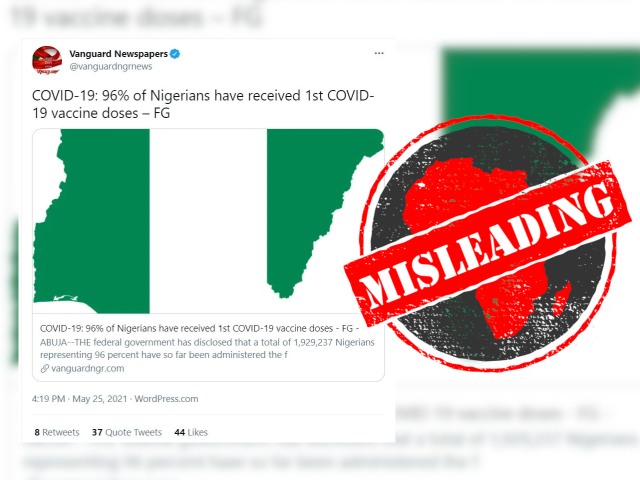In March 2019 photos of a ribbon-cutting ceremony outside a grass-thatched mud house with a single outdoor light got people talking in both Kenya and South Africa.
In Kenya they were claimed to show the governor of Busia county “launching a security light”. In South Africa the photos were supposedly of a KwaZulu-Natal province councillor “launching safety lights Emahlabathini”.
The photos also found their way into blogs. A Kenyan blog claimed they were taken in Nigeria. Blogs in Ghana and Nigeria described the man cutting the ribbon as a Kenyan politician. An online forum in Nigeria also discussed the pics.

But the man in the photos looks nothing like Busia county governor Sospeter Odeke Ojaamong. A reverse image search reveals he is actually Tanzania’s minister of energy, Dr Medard Kalemani.
The photos were taken in Rugunga village in the Kibondi district of Tanzania’s Kigoma region. They were first posted on the official Twitter accounts of Tanzania’s energy ministry and the Tanzania Electric Supply Company, Tanesco.
The Citizen newspaper reported that Kalemani had asked contractors to connect Tanzanians to electricity regardless of economic status.
At the time, the village of Rugunga was being connected to electricity by Rural Electrification Agency (REA) contractors. The minister was there to celebrate.
REA is an independent body under Tanzania’s energy ministry, and works to improve access to energy services in rural areas in mainland Tanzania.
REA and Tanesco assured the public that grass-thatched houses could be safely connected to electricity with no threat to the owners’ life and property, the Citizen reported. - Dancan Bwire (09/04/19)
In Kenya they were claimed to show the governor of Busia county “launching a security light”. In South Africa the photos were supposedly of a KwaZulu-Natal province councillor “launching safety lights Emahlabathini”.
The photos also found their way into blogs. A Kenyan blog claimed they were taken in Nigeria. Blogs in Ghana and Nigeria described the man cutting the ribbon as a Kenyan politician. An online forum in Nigeria also discussed the pics.

Rural electrification programme in Tanzania
But the man in the photos looks nothing like Busia county governor Sospeter Odeke Ojaamong. A reverse image search reveals he is actually Tanzania’s minister of energy, Dr Medard Kalemani.
The photos were taken in Rugunga village in the Kibondi district of Tanzania’s Kigoma region. They were first posted on the official Twitter accounts of Tanzania’s energy ministry and the Tanzania Electric Supply Company, Tanesco.
The Citizen newspaper reported that Kalemani had asked contractors to connect Tanzanians to electricity regardless of economic status.
At the time, the village of Rugunga was being connected to electricity by Rural Electrification Agency (REA) contractors. The minister was there to celebrate.
REA is an independent body under Tanzania’s energy ministry, and works to improve access to energy services in rural areas in mainland Tanzania.
REA and Tanesco assured the public that grass-thatched houses could be safely connected to electricity with no threat to the owners’ life and property, the Citizen reported. - Dancan Bwire (09/04/19)
Republish our content for free
For publishers: what to do if your post is rated false
A fact-checker has rated your Facebook or Instagram post as “false”, “altered”, “partly false” or “missing context”. This could have serious consequences. What do you do?
Click on our guide for the steps you should follow.
Publishers guideAfrica Check teams up with Facebook
Africa Check is a partner in Meta's third-party fact-checking programme to help stop the spread of false information on social media.
The content we rate as “false” will be downgraded on Facebook and Instagram. This means fewer people will see it.
You can also help identify false information on Facebook. This guide explains how.



Add new comment